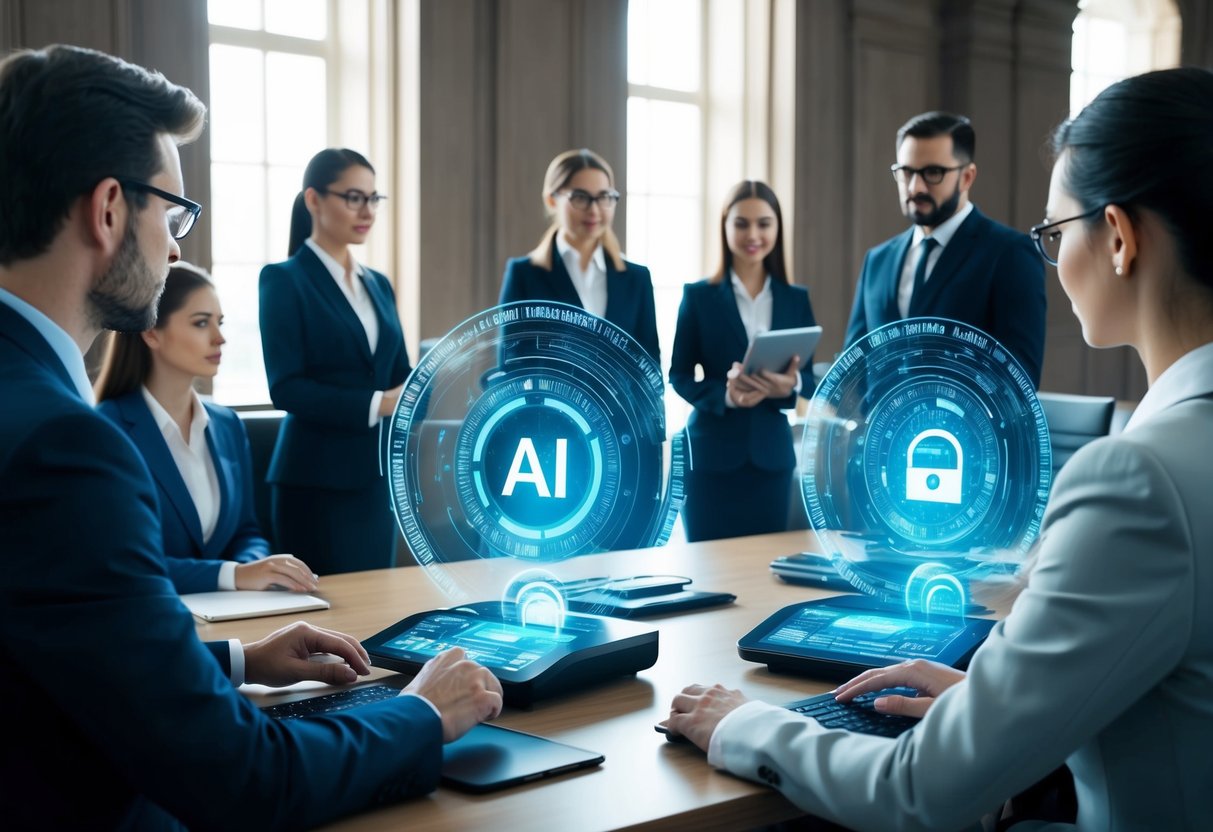
Artificial intelligence is rapidly making its presence felt in the legal industry, reshaping traditional practices and introducing new efficiencies. AI-powered legal services are driving a transformation that promises more accurate, faster, and cost-effective solutions in legal work. From drafting contracts to analyzing extensive legal documents, AI tools are streamlining many time-consuming tasks that lawyers traditionally handled manually.
The adoption of technology within legal services is not merely about automating routine tasks. AI is also enhancing the decision-making process by providing data-driven insights, which help legal professionals make more informed choices. This metamorphosis is not only expected to increase productivity but also to open new avenues for tapping into innovative legal strategies.
Artificial intelligence is positioned as a catalyst for change in the legal sector, offering unprecedented potential for growth and innovation. As law firms and legal departments embrace AI, the landscape of legal services is shifting, bringing with it a blend of challenges and opportunities that professionals must navigate. Those who leverage these advancements stand to gain a significant competitive edge.
The Evolution of AI in Law
AI’s role in the legal sector has grown significantly, with advancements shaping its functions. Historical milestones reveal this development trend, while the current state highlights the varied integration of AI within legal practices.
Historical Context and Milestones
AI’s journey in law began with the digitization of legal documents, simplifying access and research. In the 1970s, initial projects like the “Electronic Discovery” system represented early attempts at AI integration, enabling more efficient data searches. By the 1990s, systems such as Westlaw and LexisNexis revolutionized legal research, providing searchable databases.
The 2000s saw AI adoption increase, focusing on automating routine tasks. Predictive coding for document review emerged, reducing human workload significantly. With advanced natural language processing, AI began understanding complex legal texts, aiding in drafting and analysis. Developing AI-powered legal tech like chatbots transformed client interactions, making services more accessible.
Current State of AI Integration
At present, AI’s integration in law is widespread yet varied. Many firms use AI for legal research, document review, and contract analysis. These applications improve efficiency, reduce costs, and enhance accuracy. AI systems like ROSS Intelligence, which leverages IBM Watson, demonstrate how AI assists in understanding case law, bolstering attorneys’ capabilities.
Moreover, AI in legal tech facilitates predictive analytics, assisting lawyers in anticipating case outcomes. Despite its benefits, full AI adoption faces challenges such as data accuracy, privacy concerns, and ethical issues. Efforts to address these concerns are ongoing, and AI’s evolving role in law continues to reshape traditional practices.
Legal Research and AI
In legal research, AI technologies are revolutionizing the way data is analyzed and interpreted. Through AI algorithms and natural language processing, the legal sector is experiencing significant changes that impact professionals and legal systems.
Advances in Legal Data Analysis
AI algorithms are at the heart of transforming legal data analysis. They efficiently process vast amounts of legal documents, case laws, and statutes. By utilizing natural language processing, AI can understand and interpret complex legal language, which was once a challenge for many human researchers.
These technologies identify patterns and insights that may not be apparent to the human eye. The capacity to swiftly pinpoint relevant precedents and key information drastically reduces the time required for thorough legal research.
AI not only accelerates the research process but also enhances its accuracy, providing an unparalleled level of detail and precision. This elevation in quality helps ensure legal professionals have the most relevant and reliable information at their disposal.
Implications for Legal Professionals
The integration of AI in legal research has significant implications for legal professionals. There is a shift in how lawyers and legal researchers approach their work, focusing more on strategic analysis rather than routine data gathering.
AI tools take on time-consuming tasks, allowing legal experts to concentrate on crafting arguments and exploring creative legal solutions. Legal professionals must also adapt by acquiring new skills to work effectively alongside AI technologies.
This collaboration between human expertise and machine precision fosters a more efficient legal system. While there are concerns about job displacement, many see the potential for AI to augment human capabilities and open new avenues for specialization.